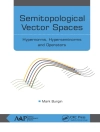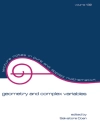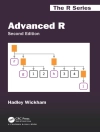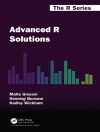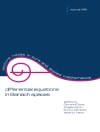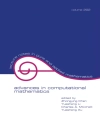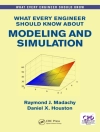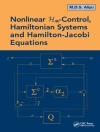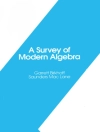Mathematical models are very much in the news now, as they are used to make decisions about our response to such vital areas as COVID-19 and climate change. Frequently, they are blamed for a series of dubious decisions, creating much concern amongst the general public. However, without mathematical models, we would have none of the modern technology that we take for granted, nor would we have modern health care, be able to forecast the climate, cook a potato, have electricity to power our home, or go into space.
By explaining technical mathematical concepts in a way that everyone can understand and appreciate, Climate, Chaos and COVID: How Mathematical Models Describe the Universe sets the record straight and lifts the lid off the mystery of mathematical models. It shows why they work, how good they can be, the advantages and disadvantages of using them and how they make the modern world possible. The readers will be able to see the impact that the use of these models has on their lives, and will be able to appreciate both their power and their limitations.
The book includes a very large number of both short and long case studies, many of which are taken directly from the author’s own experiences of working as a mathematical modeller in academia, in industry, and between the two. These include COVID-19 and climate and how maths saves the whales, powers our home, gives us the material we need to live, and takes us into space.
Contents:
- Preface
- About the Author
- How Mathematics Models Real Life
- Why Did the Mathematician Cross the Road?
- Mathematics Saves the whales!
- How Mathematics Helped in the Fight Against COVID-19
- Can Mathematics Predict the Future?
- The Mathematics of Climate Change
- Energetic Mathematics
- Mathematical Food for Thought
- Material Mathematics
- Mathematics Goes into Space
- References
- Index
Readership: Keen high school students, teachers, STEM undergraduates and postgraduates interested in the field of applied mathematics and mathematical modelling; policymakers and decision makers in relevant industries such as Education, Environment, Health and Social Care, and Energy; members of the general public who want to understand more of the mathematics behind the models used in everyday life.
‚Chris Budd conveys the power and wonder of mathematics in stories — and, having gained your interest, explains the underlying mathematics. Discover how, during a boring sermon, Galileo observed the predictability of the swing of a pendulum, later explained by the mathematics of Newton. Mathematical models are relatively easy to develop for physical systems where the underlying equations are understood, and are also now being used in biological and social sciences. This was vital during the COVID-19 pandemic. Chris explains how models can describe population behaviour and also spells out their limitations. He uses analogies, quotes, and stories to enliven a complex topic. Look out for the glass of whisky and the warning ‚don’t eat the menu‘.‘ – Vicky Pope Honorary Professor STEa PP University College London, UK Editor in Chief of Climate Resilience and Sustainability
‚In this beautifully constructed and readable book, Chris Budd draws on his extensive experience to explain how mathematical models are being applied to some of the biggest problems facing humanity. He pays attention not just to the results, but to the black art of setting up a model in the first place. I particularly liked the wise words of warning about how this process can go wrong. Highly recommended!‘ – Ian Stewart FRSAuthor of What’s the Use? (2021)
‚Everybody has heard that mathematics is useful in the real world. But how, exactly? In this accessible and wide-ranging book, Chris Budd explains the modern maths underlying everything from climate change and COVID epidemics to the way an invisibility cloak works. The writing is warm and friendly, yet scientifically precise and careful, with many helpful illustrations, stories, and even a few dad jokes here and there.‘ – Steven Strogatz Jacob Gould Schurman Professor of Applied Mathematics, Cornell University, USAAuthor of Infinite Powers (2019)
‚Mathematics is everywhere — in weather, transport, health, finances, food, homes — and it takes a rare ability to explain why the subject arises and to indicate how the resulting problems are then modelled and attacked. Chris Budd has this talent in abundance. With his wide-ranging practical experience of real-world mathematical modelling, he has the technical background and the exceptional ability to explain challenging mathematical ideas at levels appropriate for different audience which make him the ideal expositor of such topics. Based on his highly popular lectures at Gresham College, this remarkable book is necessary and is greatly welcomed.‘ – Robin Wilson Emeritus Professor of Pure Mathematics, The Open University, UKGresham Professor of Geometry, 2004–08
Key Features:
- The current high profile use of mathematical models to make decisions on COVID-19 and climate and beyond has created both a concern in the public, and also a desire to learn much more about how and why they work. This book aims to do exactly this. It also aims to provide motivation for why we learn mathematics at school, showing the huge power that mathematics has when it is used in the real world
- The topics covered, which include COVID-19, Climate change and saving the whales could not be more topical
- The level of mathematics varies between none, and that learned by the end of high school. The reader can therefore choose to either get involved in the mathematics and learn exactly how it is applied, or they can follow the story of how it is used in the different case studies


